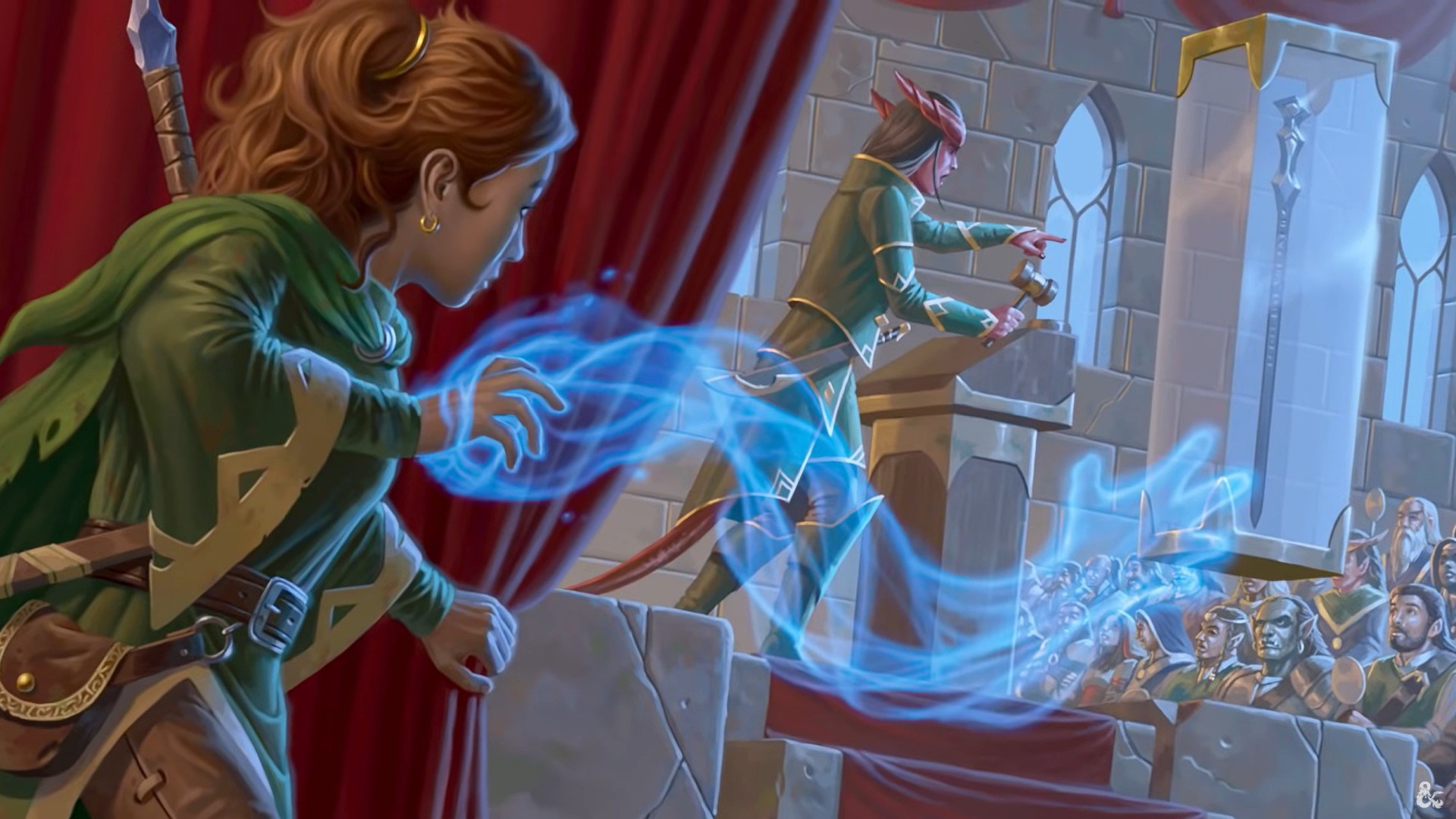There are many spells in Dungeons and Dragons, and each of them is part of one of the DnD schools of magic. These schools are an important but easily overlooked bit of information for a DM. You can use details from the schools to flesh out your TTRPG world, and the information might become crucial to your campaign when you least expect it.
As for players, it may seem like only a DnD Wizard would worry about the schools of magic, but most of the DnD classes can cast 5e spells. Heck, even some of the DnD races have natural magical abilities. This means there’s plenty of benefit to understanding the different types. They can help you pick your preferred playstyle, and they’re also handy in-game; a Detect Magic 5e spell can tell you what kind of magic you’ve discovered, but you actually need to know what that means. Below you’ll find a complete guide to the schools of magic 5e offers.
There are eight DnD schools of magic:
- Abjuration
- Conjuration
- Divination
- Enchantment
- Evocation
- Illusion
- Necromancy
- Transmutation
One thing to note about the schools of magic is that no spellcaster has to stick to a single school. A D&D Wizard choose a school and gain benefits for using its spells, but there’s no reason they can’t learn spells from other schools. Additionally, certain subclasses have school-related limitations, but they aren’t total. An Eldritch Knight Fighter 5e can only pick Abjuration and Evocation spells most of the time, but certain DnD level ups let them learn from other schools too.
Abjuration 5e
Spellcasters who study Abjuration 5e are interested in protection. They may negate harmful effects with spells like Counterspell 5e and Dispel Magic 5e, or they may grant invulnerability through a magical Shield 5e. Abjurers often work double time as exorcists, banishing evil and removing curses.
Conjuration 5e
Conjuration 5e magic is all about summoning something that wasn’t there before. This may involve calling an ally, such as through Mage Hand 5e or Find Familiar 5e. Perhaps you call the elements to rain hellfire on your enemies, or you’ve gotten the hang of teleportation. You can make anything from insects to Infernal beings appear.
Divination 5e
Adventurers who want to know everything should consider the Divination 5e school of magic. Spells like Comprehend Languages and Detect Magic can help you better understand the world around you, while Arcane Eye and Scrying allow you to divine (get it?) information from afar. Want to see the future or spy on a foe? That’s divination, baby.
Enchantment 5e
The Enchantment 5e school of magic is all about influence. A powerful enchanter has immense power over other creatures, able to Command them to act directly, force them to tell the truth, or sweet talk them with spells like Charm Person. It’s not all playing nice, though; enchantment magic can also involve placing curses and driving victims to madness.
Evocation 5e
Evocation 5e might be the most aggro school of magic. Including damage-dealing darlings like Eldritch Blast 5e and Fireball 5e, this is the spell list to seek if you want to build an offensive spellcaster. Many of its spells focus on mastering magical energy. While this is mostly in service of creating as much destruction as possible, the school also throws a few healing spells in there, too. You might need to patch some of the party up after all that artillery, after all.
Illusion 5e
This is the school of magic dedicated to fooling the senses and making sure things are never what they seem. While this might seem like it’s only good for wowing children, the Illusion 5e school includes plenty of handy spells. Disguise Self and Invisibility 5e are perfect for stealth situations, and Fear lets you scare someone stiff by bringing their worst nightmares to life. This is the realm of dreams, hallucinations, and deception. It has practical and chaotic purposes.
Necromancy 5e
The Necromancy 5e school of magic is the only one that comes with an up-front warning. It’s generally good practice to check with your DM before you pursue a necromancy build. In many DnD settings, the practice is heavily frowned upon, and it could limit your roleplaying opportunities. It’s also the school that lets you create zombies, which can mean lots of NPCs on the battlefield when optimised.
When they aren’t creating armies of the undead, necromancers are causing fear, dealing curses, and sucking the life force from foes. Oh, and they do plenty of necrotic damage.
Transmutation 5e
Transmutation 5e spellcasters typically focus on changing the world around them, and potent students of this school can even shape reality itself. The school has a pretty versatile spell list, allowing you to do everything from send a Message 5e to take to the skies and Fly 5e. There are also the more obvious spells that allow you to transform materials; think Stone Shape, Control Water, and Flesh to Stone. Telekinesis and Polymorph are totally on the table here.
Source: Wargamer







